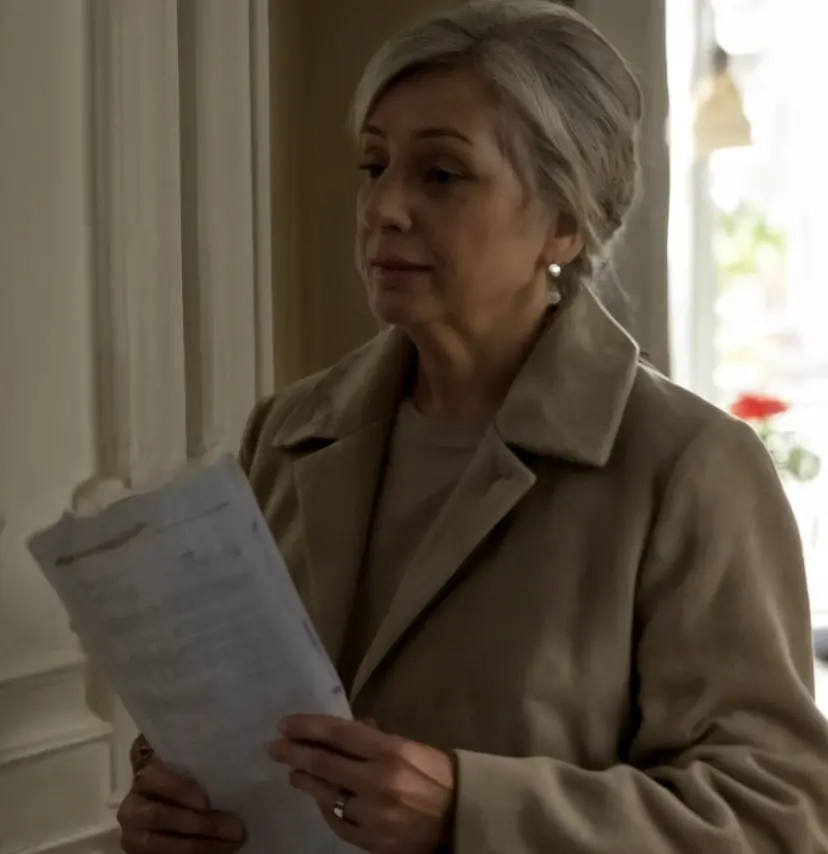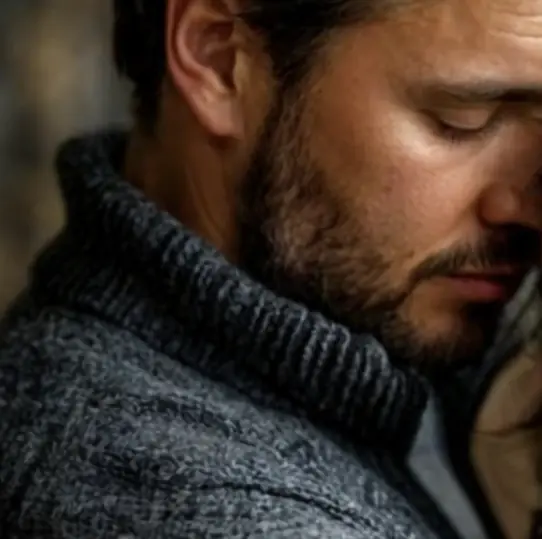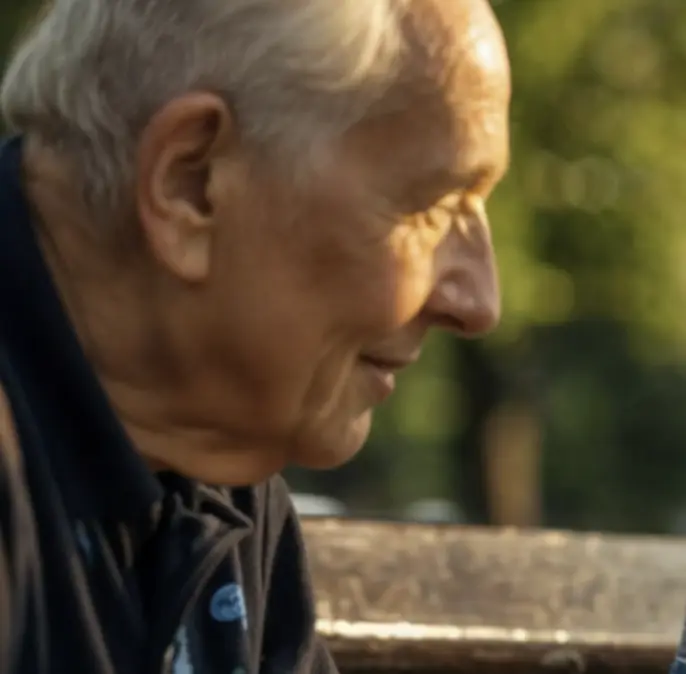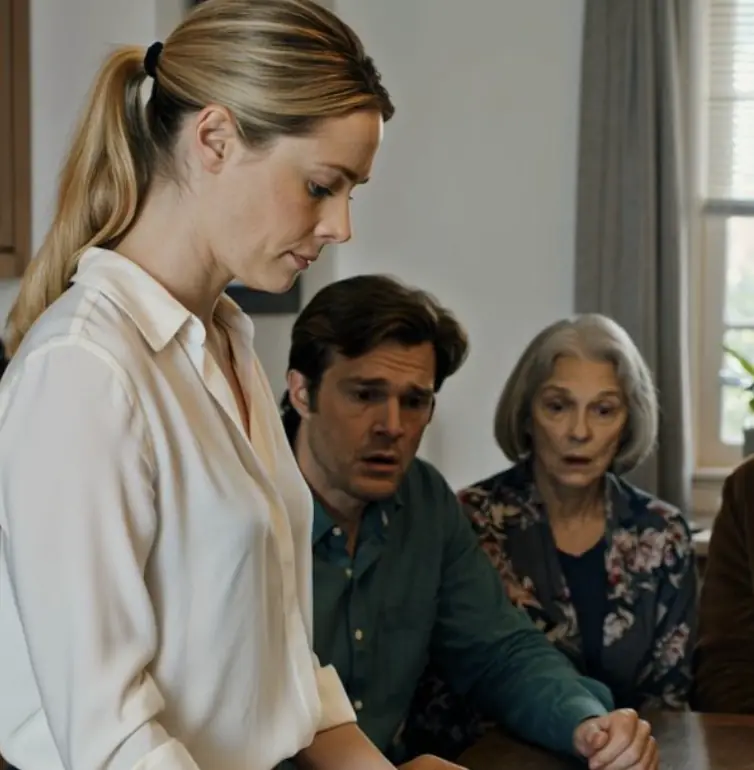
"Get out of this stinking dump!” her husband and mother-in-law laughed as they threw her out

The words hit her like a physical blow: “Get out of this stinking dump!” The laughter of her husband and mother-in-law echoed in her ears, sharp and cruel, as if to punctuate the humiliation. Mary felt her chest tighten, a mix of shock, heartbreak, and disbelief washing over her. She had known her marriage wasn’t perfect—she had known that her mother-in-law was difficult, that her husband had a streak of arrogance—but nothing had prepared her for this public, unrelenting cruelty.
Her hands trembled as she gathered her meager belongings. The apartment she had called home for the last two years suddenly seemed alien and suffocating. Every corner, every mark on the wall, felt tainted by their disdain. As she stepped into the cold hallway, carrying the small suitcase that held the remnants of her life, she realized she had nothing—not a family willing to stand by her, not even a home that welcomed her.
Outside, the city’s usual bustle felt muted, as if the world itself had recognized her disgrace. Cars honked, people rushed past, oblivious to the personal catastrophe unfolding on this quiet street corner. She walked aimlessly at first, the suitcase wheels squeaking against the cracked pavement, her mind reeling.
Mary’s thoughts drifted back to the moments that had led to this point. She had met Henry, her husband, at a company function five years ago. He was charming, handsome, and carried an air of authority that drew people in. Their courtship had been swift, filled with grand gestures, dinners at elegant restaurants, and promises that felt as infinite as the city skyline.
Marrying Henry had seemed like a dream. His family was wealthy, respected, and influential. She had imagined a life of comfort and stability, a life in which love and companionship would flourish. But the reality had been starkly different.
From the moment she moved into Henry’s family home, she had been subjected to subtle yet constant criticism. His mother, Margaret, had a sharp tongue and a relentless eye for imperfections. No meal was prepared well enough, no cleaning satisfactory, no gesture appreciated. And Henry—once warm and loving during their courtship—had become distant, cold, and complicit in his mother’s incessant complaints.
Mary had endured, believing that love required sacrifice, that marriage demanded resilience. She had tried to ignore the whispered jabs, the pointed glances, the expectations that seemed designed to make her fail. She had hoped that, in time, Henry would return to the man she had married, that the warmth they had once shared would resurface.
But hope, she realized now, had been a dangerous illusion.
The memory of that morning was still vivid. Henry and Margaret had cornered her in the kitchen, voices rising, tempers flaring over a minor disagreement—nothing more than a misplaced dish and a spilled cup of coffee. And then, without warning, the words came, cruel and deliberate. “Get out of this stinking dump!” The laughter that followed was like acid, burning into her heart.
For a moment, she had frozen, unable to comprehend the depth of their betrayal. And then, instinctively, she had obeyed, knowing that arguing would accomplish nothing. She had stepped out of the house, leaving behind not only her belongings but a piece of herself, shattered and bruised.
As she walked through the streets, Mary’s mind began to clear. The initial shock and despair gave way to a quiet, simmering determination. She realized that she could no longer rely on the love or approval of those who had treated her so cruelly. She had to find her own path, rebuild her life on her terms, and reclaim the dignity that had been so callously stripped from her.
Her first priority was survival. With only a few hundred dollars in her wallet and a suitcase of belongings, she needed a place to stay. The city was vast, intimidating, and indifferent, but she refused to let fear dictate her actions. She wandered through neighborhoods she had only passed through before, searching for a shelter, a cheap hotel, or even a safe corner where she could rest.
Eventually, she found herself outside a modest women’s shelter. The sign read: “Hope House: A Place for New Beginnings.” The irony was not lost on her. Hope. A concept that had seemed distant and unattainable, yet here it was, literally a door away.
Inside, she was greeted by a kind woman named Clara, who offered her a bed for the night and a warm meal. Mary accepted, grateful for the small acts of kindness that contrasted so sharply with the cruelty she had just endured. That night, as she lay on the thin mattress, she thought of everything she had lost and everything she could still gain.
Over the next few weeks, Mary adapted to her new reality. She found temporary work at a local café, serving coffee and pastries to strangers who treated her with the simple decency she had long been denied. Each day was a struggle, but each day also offered small victories—the first paycheck, a genuine smile from a customer, the realization that she was capable of standing on her own.
It was at the café that Mary began to rediscover herself. She struck up friendships with coworkers who had endured their own hardships and shared stories of resilience. She learned to cook, to manage her finances, and to navigate the city with confidence. Slowly, she built a network of support, a community that valued her not for her marriage or connections but for who she truly was.
Yet, despite these successes, the memory of Henry and Margaret lingered. The humiliation they had inflicted had left scars, and the anger and betrayal were difficult to shake. She realized that reclaiming her life required more than survival—it required confronting the past, not to seek revenge, but to find closure.
One day, Mary stumbled upon an old journal she had kept during her early years of marriage. Flipping through its pages, she reread her dreams, hopes, and the love she had once felt. Tears streamed down her face, but this time they were not only of sorrow—they were also of clarity. She saw the pattern of manipulation, the subtle erosion of her self-worth, and she understood that the fault had never been hers.
Empowered by this realization, Mary began to take bold steps. She enrolled in a professional writing course, something she had always dreamed of but had abandoned for the sake of her marriage. She started freelance writing, contributing articles to local magazines and blogs. Each published piece was a testament to her resilience, a declaration that she was reclaiming her voice.
Months passed, and Mary’s confidence grew. She moved into a small apartment of her own, decorated with paintings she loved, books she cherished, and photographs of her journey. She was no longer the woman who had been thrown out of a house she had once called home; she was a survivor, a creator, a woman who had turned despair into opportunity.
Then, one afternoon, a letter arrived. It was from Henry. His words were carefully measured, filled with regret and an attempt at apology. He wrote of loneliness, of reflection, and of a desire to reconnect. But Mary, now wise and resolute, read the letter and felt only a faint echo of the pain it could have caused.
She placed the letter on her desk, alongside the journal and the notes from her writing course. She did not reply. There was no need. Her life was no longer entwined with Henry or Margaret; it belonged entirely to her.
The café where she had worked became more than just a job—it became a second home. Mary continued to write, to grow, and to help other women who had faced similar hardships. She shared her story in small circles, offering mentorship and encouragement, and slowly, her journey became an inspiration to others.
Years later, Mary published her first book, a memoir of resilience, betrayal, and self-discovery. The book, titled Thrown Out: A Journey from Humiliation to Triumph, was met with critical acclaim. Readers connected with her honesty, her courage, and the way she had transformed suffering into empowerment.
At the book launch, Mary stood before a crowd of friends, supporters, and fellow survivors. She reflected on the moment she had been thrown out, the laughter that had cut deep, and the journey that had followed. She realized that the cruelty of Henry and Margaret, though devastating, had been the catalyst for her transformation.
Looking back, Mary understood that life’s harshest trials often lead to the greatest growth. She had emerged stronger, wiser, and more compassionate. The humiliation she had endured had become the foundation upon which she built her life, her career, and her sense of self.
As the event concluded and she signed copies of her book, Mary smiled. She was no longer defined by the laughter of others or the cruelty of those who had sought to diminish her. She was defined by her resilience, her choices, and the unwavering belief that one could rise from the ashes of despair to create a life of meaning, joy, and empowerment.
And in that moment, surrounded by the warmth and admiration of those who had witnessed her journey, Mary knew that she had finally claimed her rightful place—not as a victim, but as a woman who had turned a stinking dump into fertile ground for her dreams, her courage, and her triumph.
News in the same category


Jonathan, the Oldest Living Tortoise in the World

Returning from the Airport: A Mother’s Fight to Reclaim Her Husband’s Will

Rediscovering Love and Secrets at Sunny Side Café

When Family Secrets Explode: A Sister’s Deception Unveiled at the Wedding

My Sister Mocked Me for Marrying a ‘Simple Farmer’ While Her Husband Was a Finance Genius

My husband cheated, and I filed for divorce. I haven’t told him about my pregnancy

Mother-in-Law Didn’t Expect That Breaking Up Her Son’s Family Would Boomerang Back on Her

I didn’t know she existed until today. It’s not like she should be sent to an orphanage. She’s my daughter,» the husband said

When The Wilderness Chose Them: The Boy And The Fox – A Tale Of Survival And Unexpected Friendship

The Day A Stray Dog Chose Courage Over Fear And Saved A Little Girl

The orphan fed a hungry old man in the park, and the next day, a luxurious car pulled up to the shelter

How My Family Tried to Rip Apart My Adopted Daughter While I Was Hospitalized

At my sister’s wedding, my parents publicly announced that I would be giving her my two million dollar penthouse

The Hidden Will: How I Outsmarted My Mother-in-Law’s Plot

Celebrate your birthday without me, but my relatives will come, so set the table,” my husband told me

I Found Old Letters in Our Attic—And They Were Addressed to Me… from 10 Years Before I Was Born

The New Neighbor Called Me by My Childhood Nickname—But I’ve Never Met Him Before

Dad Snaps A Photo Of His Daughter In Front Of Giant Horse, Looks Closer And Can’t Stop Laughing
News Post

The Dog Who Delivered Smiles on Maple Street

Jonathan, the Oldest Living Tortoise in the World

Returning from the Airport: A Mother’s Fight to Reclaim Her Husband’s Will

Rediscovering Love and Secrets at Sunny Side Café

The rich man came to his father’s village to visit his mother, whom he hadn’t seen for 16 years. But upon seeing an unfamiliar woman by the gate, he was left speechless

When Family Secrets Explode: A Sister’s Deception Unveiled at the Wedding

My Sister Mocked Me for Marrying a ‘Simple Farmer’ While Her Husband Was a Finance Genius

Crispy Burrata Zucchini Blossoms

One-Skillet Garlic Butter Steak & Cheese Ravioli

My husband cheated, and I filed for divorce. I haven’t told him about my pregnancy

Mother-in-Law Didn’t Expect That Breaking Up Her Son’s Family Would Boomerang Back on Her

I didn’t know she existed until today. It’s not like she should be sent to an orphanage. She’s my daughter,» the husband said

When The Wilderness Chose Them: The Boy And The Fox – A Tale Of Survival And Unexpected Friendship

The Day A Stray Dog Chose Courage Over Fear And Saved A Little Girl

The orphan fed a hungry old man in the park, and the next day, a luxurious car pulled up to the shelter

How My Family Tried to Rip Apart My Adopted Daughter While I Was Hospitalized

At my sister’s wedding, my parents publicly announced that I would be giving her my two million dollar penthouse

The Hidden Will: How I Outsmarted My Mother-in-Law’s Plot
